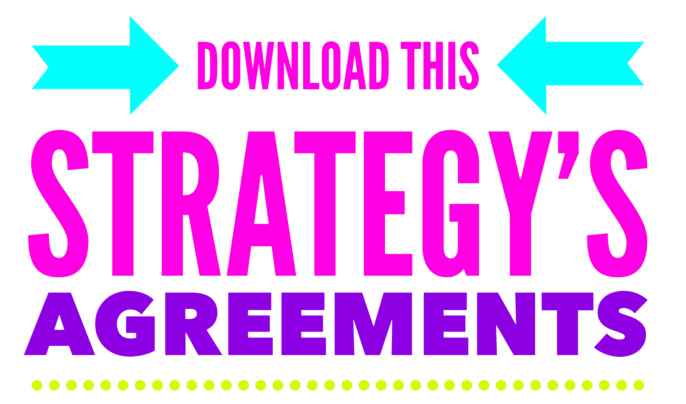Installment for Deed
Agreement for Deed
Land Installment Contract
(Executory Contracts)
In a Contract for Deed:
Purchase Agreement: The buyer and seller enter into a contract, where the seller agrees to sell the property to the buyer, and the buyer agrees to purchase it. This contract outlines the purchase price, down payment, interest rate (if any), payment schedule, and other terms of the agreement.
Ownership Possession: While the buyer gains equitable interest in the property, legal ownership typically remains with the seller until the contract's terms are fulfilled. This means the buyer can live on and use the property but doesn't receive the deed until they've met all the contract's conditions.
Payment Schedule: The buyer makes regular payments to the seller over a specified period, similar to mortgage payments. These payments typically cover the purchase price plus interest and may also include property taxes and insurance.
Final Deed Transfer: Once the buyer has completed all payments (or a certain number of payments) and fulfilled any other contract conditions (such as maintaining the property and paying taxes), the seller then transfers the property's legal title (deed) to the buyer. At this point, the buyer becomes the full legal owner of the property.
Key Points:
Ownership: Unlike a traditional mortgage, where the buyer typically gains legal ownership upon closing, in a Contract for Deed, the buyer gets equitable ownership during the contract term but doesn't receive legal title until the contract is fully executed.
Default and Forfeiture: If the buyer fails to make payments or violates other terms of the contract, the seller may have the right to terminate the contract and retain the property. This varies by jurisdiction and the terms of the specific contract.
Flexibility: Contract for Deed arrangements can offer flexibility in financing, making it an option for buyers who may not qualify for traditional mortgages. However, they also carry some risks, particularly for the buyer, as they don't have legal title until the contract is fulfilled.
It's important for both buyers and sellers to understand the legal and financial implications of a Contract for Deed and consult with professionals, such as real estate attorneys, before entering into such an agreement. Additionally, the specific terms and regulations related to Contract for Deed transactions can vary by jurisdiction.
Here's an example of Using Contract for Deed:
Property Details:
Purchase price of the home: $300,000
Seller's outstanding mortgage balance: $200,000
Seller's equity in the property: $100,000
Installment for Deed Transaction:
The buyer and seller agree that the seller will transfer the property's title to the buyer after an installment for deed contract has been fulfilled.
The buyer agrees to make regular payments to the seller over a specified period instead of obtaining traditional financing.
The buyer takes possession of the property and is responsible for its maintenance and expenses.
Down Payment and Terms:
The buyer provides a down payment of, let's say, $20,000 to the seller.
The remaining purchase price of $280,000 is financed through installment payments.
The buyer and seller agree on the interest rate, duration, and frequency of payments, as well as any other applicable terms, such as late fees or early repayment options.
Ongoing Payments and Ownership Transfer:
The buyer makes regular installment payments to the seller according to the agreed-upon terms.
Once the buyer completes all payments, the seller transfers the property's title to the buyer, indicating full ownership.
Ongoing Obligations and Risks:
While the buyer is making installment payments, the seller retains legal ownership of the property.
The buyer is responsible for property taxes, insurance, and any other costs associated with owning the property.
It's essential for the buyer to fulfill their payment obligations to avoid default and potential termination of the installment for deed agreement.
🙌 ASK THIS QUESTION TO SEE IF THIS "INSTALLMENT FOR DEED" STRATEGY FITS THE HOMEOWNER LEAD YOU'RE TALKING TO:
"Mr. Home Owner, will you accept your asking price as a small down payment and the rest of your equity in monthly payments - transferring the deed after a period of time?"
🙌 You'll Know This Strategy Fits If The Homeowner Says:
"I don’t need all the money upfront, but I want to make sure I get paid over time."
"I’d rather sell the house over time than get a lump sum."
"I want to keep control of the property until the buyer has made all payments."
"I’d like to sell on terms, but I don’t want to transfer full ownership until the property is fully paid off."
"I’m willing to offer financing if it helps the buyer purchase."
Best For:
Sellers who prefer structured payments rather than a one-time payout.
Sellers who want to retain legal title to the property until all terms of the agreement are met.
Buyers who might struggle to qualify for traditional financing but are able to make payments over time.

Agreement for This Strategy:
(State Specific: Contract for Deed, Land Contract, Installment for Deed, etc. Check Your State for Your Agreement)
CLOSES AT TITLE ATTORNEY CO
Although Deed DOES NOT TRANSFER
HINT: You May Be Able To Use a Service Like RocketLawyer.com
Quiz/Test: Installment for Deed Real Estate Investing
What is the Installment for Deed strategy?
a) The buyer and seller agree that the seller will transfer the property's title to the buyer after an installment for deed contract has been fulfilled.
b) The buyer agrees to make regular payments to the seller over a specified period instead of obtaining traditional financing.
c) The buyer takes possession of the property and is responsible for its maintenance and expenses.
d) All of the above.
How is the remaining purchase price typically financed in an Installment for Deed transaction?
a) Through a promissory note from the buyer to the seller.
b) Through a conventional mortgage from a bank.
c) Through a personal loan from the seller's family member.
d) Through a credit card cash advance.
What is the purpose of a down payment in an Installment for Deed transaction?
a) To reduce the remaining purchase price.
b) To cover the seller's outstanding mortgage balance.
c) To demonstrate the buyer's commitment to the agreement.
d) To pay for the property's maintenance and expenses.
Who retains legal ownership of the property during an Installment for Deed transaction?
a) The buyer.
b) The lender.
c) The seller.
d) The closing agent.
What are the ongoing obligations of the buyer in an Installment for Deed arrangement?
a) Making regular installment payments to the seller.
b) Paying property taxes and insurance.
c) Maintaining the property and covering its expenses.
d) All of the above.
What happens once the buyer completes all payments in an Installment for Deed transaction?
a) The seller transfers the property's title to the buyer.
b) The buyer assumes the seller's mortgage.
c) The buyer refinances the property with a new loan.
d) The seller cancels the agreement and repossesses the property.
What risks should the buyer be aware of in an Installment for Deed agreement?
a) The potential termination of the agreement for default.
b) The possibility of the seller encumbering the property with additional mortgages.
c) The need to fulfill payment obligations to avoid legal consequences.
d) All of the above.
True or False: The buyer is responsible for property taxes, insurance, and other costs associated with owning the property in an Installment for Deed transaction.
a) True
b) False
What legal documents are typically involved in an Installment for Deed transaction?
a) Installment for Deed Contract or Agreement
b) Purchase and Sale Agreement
c) Promissory Note
d) All of the above
Where does the closing typically take place in an Installment for Deed transaction?
a) Seller's attorney's office
b) Buyer's attorney's office
c) Title company's office
d) Real estate agent's office


